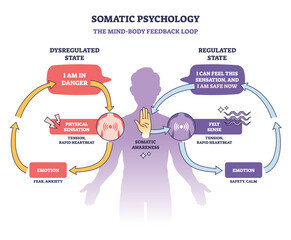The SMILES trial (Supporting the Modification of Lifestyle in Lowered Emotional States) was one of the first studies to investigate the question “if I improve my diet, will my mood improve.” In this study, conducted from 2012-2015, participants spent 12 weeks following a specific eating pattern modeled on the Mediterranean diet.
Twelve weeks later, a third of those in the intervention group showed remission of major depression, compared to only 8 percent of the control group. What’s noteworthy about this trial is that there was no calorie monitoring or restriction on this eating pattern. Participants ate to their hunger levels and still had great results. What did they eat? Check out the recommended foods:
- Whole Grains (5-8 servings/day): Incorporating a variety of whole grains such as quinoa, brown rice, and whole wheat bread provides essential nutrients and fiber.
- Vegetables (6 servings/day): A colorful array of vegetables offers a multitude of vitamins, minerals, and antioxidants, supporting overall health and well-being.
- Fruit (3 servings/day): Fruits, rich in natural sugars and fiber, contribute to a well-rounded diet.
- Legumes (3-4 servings/week): Beans, lentils, and chickpeas are excellent sources of protein, fiber, and various micronutrients, promoting satiety and digestive health.
- Dairy (2-3 servings/day): Dairy products supply calcium, vitamin D, and protein, vital for bone health and overall nutritional balance.
- Fish (2 servings/week): Fatty fish like salmon and mackerel provide omega-3 fatty acids, supporting brain health and potentially influencing mood.
- Lean Red Meats (3-4 servings/week): A moderate intake of lean red meats ensures a source of iron and protein, contributing to overall nutritional needs.
- Chicken (2-3 servings/week): Lean poultry options offer a lean protein source, supporting muscle health and providing essential amino acids.
- Eggs (up to 6/week): Eggs are rich in protein and essential nutrients, offering a versatile and nutritious addition to the diet.
- Olive Oil (3 tablespoons/day): The inclusion of olive oil, a staple in the Mediterranean diet, provides heart-healthy monounsaturated fats and adds flavor to meals.
Looking at that list may feel overwhelming – don’t worry! It’s important to note that to achieve this level of specificity, the participants in the SMILES trial had regular meetings with a nutrition provider who helped them plan their approach.
For those curious about incorporating dietary changes into their lifestyle, starting small is key. Consider focusing on one food item at a time – perhaps adding an extra serving of vegetables to your daily intake. This gradual approach allows for a more manageable transition and sets the foundation for long-term dietary improvements. Check out the recipe pack on the Illuminate Therapy & Wellness website, under the Functional & Integrative Nutrition tab, and see if anything sounds fun to try!
The SMILES trial not only provides valuable insights into the connection between diet and mental health but also emphasizes the significance of personalized support and guidance. As we continue to unravel the intricate relationship between nutrition and well-being, taking small steps towards a healthier diet may prove to be a meaningful stride towards nurturing both body and mind.
Meg Bowman MS CNS LDN CHES, Co-Founder of Nutrition Hive




